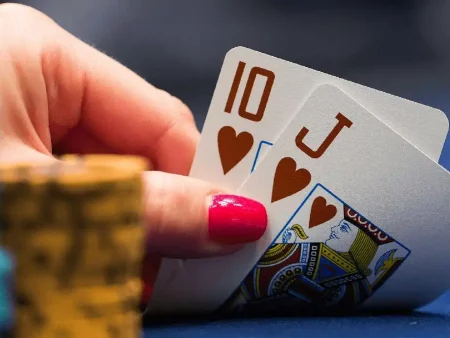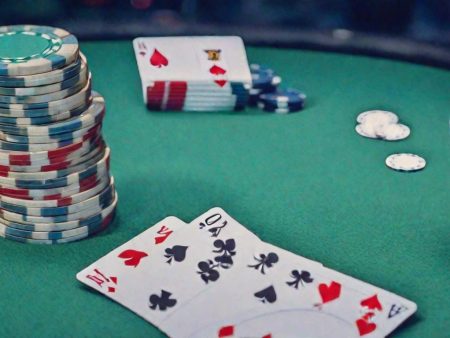The term bumhunting in poker describes a tactic when experienced players look for exceptionally weak opponents and try to extract maximum profit from them. This is usually found in cash games and Sit & Go tournaments. Bumhunters prefer to play against less experienced players to increase their winnings.
This phenomenon can be seen as an extreme form of hunting for weak players. It has its causes and consequences that affect both professional and amateur players, as well as poker rooms themselves. To better understand the tactics described by the term bumhunting, you need to consider its pros and cons.
Advantages of bumhunting
Although bumhunting is positioned as a completely negative phenomenon, it has its advantages. Although not for all participants of the gambling process.
- One of the most noticeable advantages is the ability to achieve a high percentage of winning sessions. By choosing weak opponents, you have an advantage that can significantly increase your winnings over the long haul.
- Finding weak opponents in online casinos and playing games with them usually requires less time and effort than competing with more experienced players. You can quickly increase your profits without putting in much effort.
- Steady winnings against less experienced players help you build your bankroll faster. This gives you the opportunity to play at higher limits and increase your potential earnings.
Read also: What is BB in poker.
Cons of bumhunting
While for some poker players, bumhunting is an opportunity to make an easy profit, for others it has negative consequences. And professionals themselves can suffer from the frequent use of this tactic.
- Constant participation only in games with weak opponents can lead to strategic stagnation. The lack of challenge from stronger opponents can reduce your motivation to improve your skills and develop new strategies.
- Over time, bumhunters break up the pot of less experienced players, which can lead to a decrease in their number. This means that you may face a shortage of weak opponents, and thus your potential earnings will decrease.
- This tactic is often perceived as unethical behaviour in poker. This is because the goal is to exploit less experienced players, which can cause resentment and disapproval in the poker community.
- Many online poker rooms, understanding what bumming is and realising the consequences, take measures to limit it, such as random seating at the table or restrictions on the use of tracking software. This can make the tactic less effective and create additional difficulties for its practitioners.
- Bumhunters may be focused on short-term gains and may find it difficult to develop a long-term profitable strategy. This can lead to financial fluctuations and instability in their income.
Thus, bumhunting has both advantages and disadvantages. It is important for players to carefully weigh these aspects and decide how much they want to use this tactic in their poker career.

How poker rooms deal with bumhunters
Poker rooms take various measures to combat players who look for weak opponents in order to profit from them. These measures should make the gaming space more balanced and satisfactory for both professional and amateur players. It is much more pleasant to play in a casino where bonuses have a chance to be turned into profit rather than wasted on a kind of scam. The most popular measures to ensure fair and honest play include the following.
- Increasing the purchase amount at cash tables. Many poker rooms have set minimum buy-ins (the amount required to sit at the table) at higher levels. This reduces the likelihood that bumhunters can easily join tables with very small buy-ins where beginners play.
- Random seating. Some poker rooms have introduced a system of random seating of players at the tables. This makes it very difficult to choose specific opponents and focus exclusively on weak players.
- Prohibition of displaying opponents’ nicknames before the game. Conscious platforms have removed the ability to see opponents’ nicknames until the player is already at the table. Thus, it is much more difficult for bumhunters to choose weak opponents in advance.
- Prohibiting the use of auto-seating scripts and programs to track weak players. Rooms limit the use of specialised software that helps bumhunters to easily find and sit at tables with newcomers.
- Introduction of fast cash game tables with a constant change of opponents. Modern platforms for popular card games offer formats where opponents change after each hand. This makes it impossible to choose and pursue specific players.
- Reduced decision-making time. To prevent bumhunting, rooms can set a time limit for players to make their decisions. With such a rule, it is more difficult to use long pauses to find weak opponents.
- Development of entertaining game formats. Rooms offer different game formats where success plays a more significant role. This range often includes Spin & Go and All-in or Fold games, where strategy is less important.
It is worth noting that the possibility of blocking winning players, similar to what sometimes happens in betting shops, is unlikely in online poker. The reason is that poker rooms do not give their money to players regardless of their status (newbie or regular). On the contrary, the rooms earn money from commissions and rake, which is charged for each hand or tournament. Their profit depends on the volume of play, and they are interested in attracting players and stimulating gaming activity as much as possible.
Read also: What is an overlay in poker.
Gradually, the influence of bumhunting is decreasing, especially in tournaments where it is impossible to choose opponents and where strategic competence and the ability to adapt play an important role. Limiting this phenomenon is important for maintaining an exciting and balanced playing environment where both professional players and beginners can find their place and enjoy poker. Finally, we would like to remind you that if you were looking for a casino with a deposit from 1 USD, please follow this link. Read more information about the gambling industry in our blog.
FAQ: What is bumhunting in poker?
What is bumhunting in poker?
Bank hunting is a strategy in poker that consists in choosing and playing against players with certain characteristics or playing style that can bring the most profit. Players using this strategy focus on finding players with mistakes or weaknesses in order to maximize their winnings.
How to identify the ideal opponents for banhaniting?
To find the perfect opponents for banhaniting:
- Analyze Stats: Use poker trackers to assess your opponents' stats, including their aggressiveness, raise frequency, and betting.
- Assess behavior: Pay attention to the style of play of opponents - whether they play passively or aggressively, whether they often bluff or make mistakes.
- Study trends: Look at the behavior of players in different situations to identify their weak points.
What strategies are used in banhaniting?
Banchanting strategies may include:
- Picking Weaker Players: Focus on playing against players who often make mistakes or have weak strategies.
- Strategy Adaptation: Adapt your strategy to your opponents' play style to maximize profits.
- Intelligence Gathering: Constantly gather and analyze information about your opponents to improve your strategy.
How does banhunting affect your game?
Banhunting affects your game in the following ways:
- Improved profitability: Focusing on players with errors can improve the overall level of profitability.
- Strategic selection: You can better select situations and opponents, allowing you to play more effectively.
- Risk reduction: Playing against weaker opponents reduces risk and increases the chances of winning.
What mistakes should be avoided when banhaniting?
Mistakes to avoid:
- Overconfidence: Don't rely solely on your opponents' weaknesses; always check your cards and strategy.
- Failure to adapt: Don't forget to adapt your game if your opponents change their strategy.
- Irregular analysis: Do not neglect the regular analysis of your opponents so that you do not miss changes in their game.
How to effectively use banhaniting in tournaments?
In tournaments, banhunting can be used as follows:
- Picking Opponents: Look for players with mistakes or weak strategies to exploit their weaknesses.
- Tournament structure analysis: Evaluate the tournament structure and adapt your strategy according to the different stages of the game.
- Information Collection: Continuously collect and analyze information about players to identify the best opportunities for banhuniting.
Where can I learn more about banhanying and game strategies?
You can learn more about banchaning through poker books, articles, video tutorials, and online courses. Resources that specialize in poker strategy and analytics can also provide useful information about banchaning and how to effectively apply this strategy in the game.






